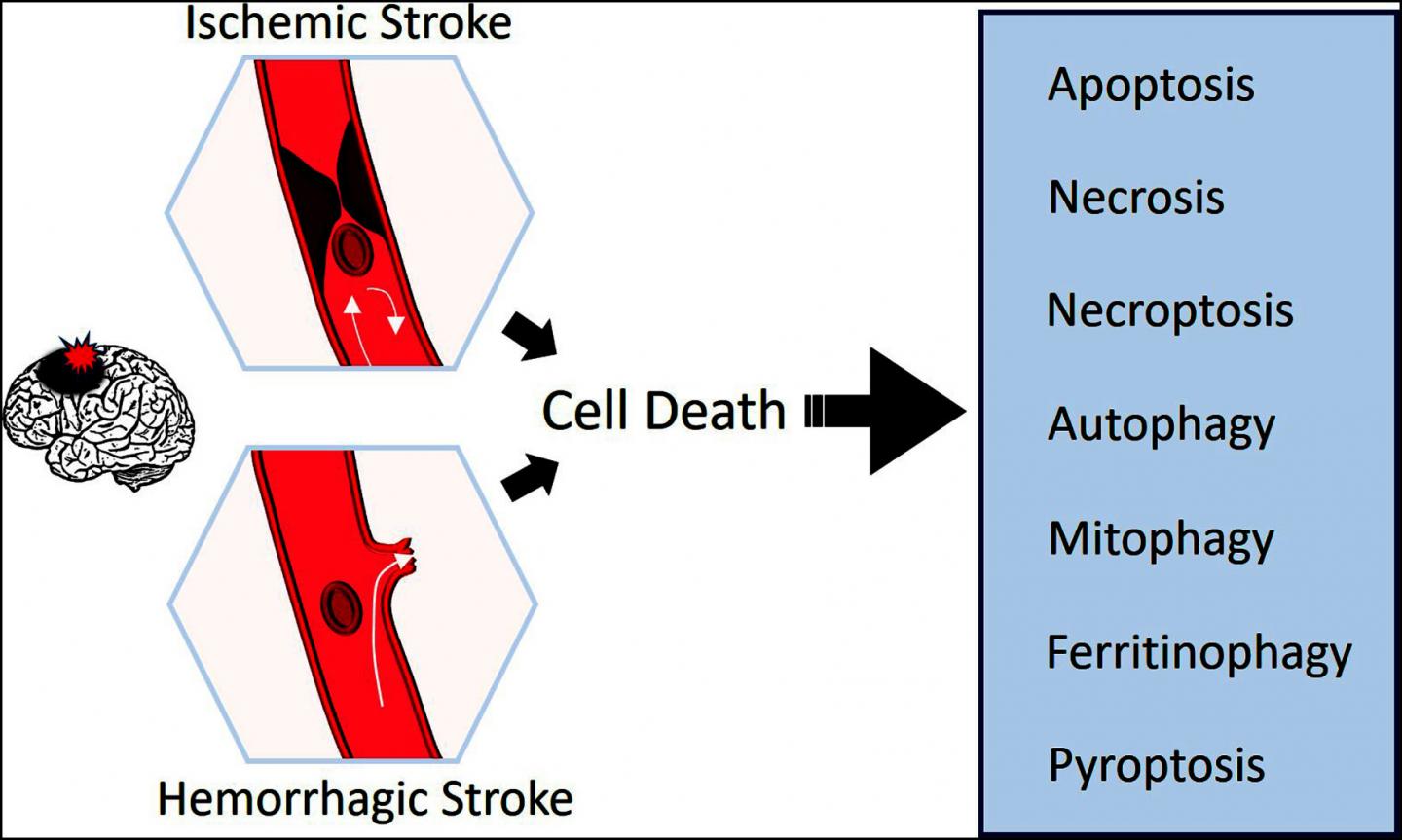This article by Dr. Emine Sekerdag et al. is published in Current Neuropharmacology, Volume 16, Issue 9, 2018

Credit: Bentham Science Publishers, Dr. Emine Sekerdag et al.
The blood circulation to neurons is affected due to Ischemic, hemorrhagic stroke and subarachnoid hemorrhage stimulation the activation of pathophysiological responses i.e. mitochondrial death pathways, protein misfolding, apoptosis, pyroptosis, necrosis, autophagy, mitophagy, ferritinophagy, excitotoxicity, free radicals release, and inflammation. The review focuses on the recent updates in our knowledge about cellular death mechanisms caused by the loss of neuronal cells and astrocytes, damage to white matter.
Novel treatment preferences in stroke involves restoration of blood flow control and the applicability of treatments is restricted due to a limited bioactive time window of thrombolytic agents. Ischemic, hemorrhagic stroke and subarachnoid hemorrhage are discussed in this review in relation to novel molecular, cellular treatment alternatives and cellular death mechanisms.
###
This article is Open Access till 31st December, 2018. To obtain the article, please visit: http://www.
Media Contact
Faizan ul Haq
[email protected]
Related Journal Article
http://dx.




